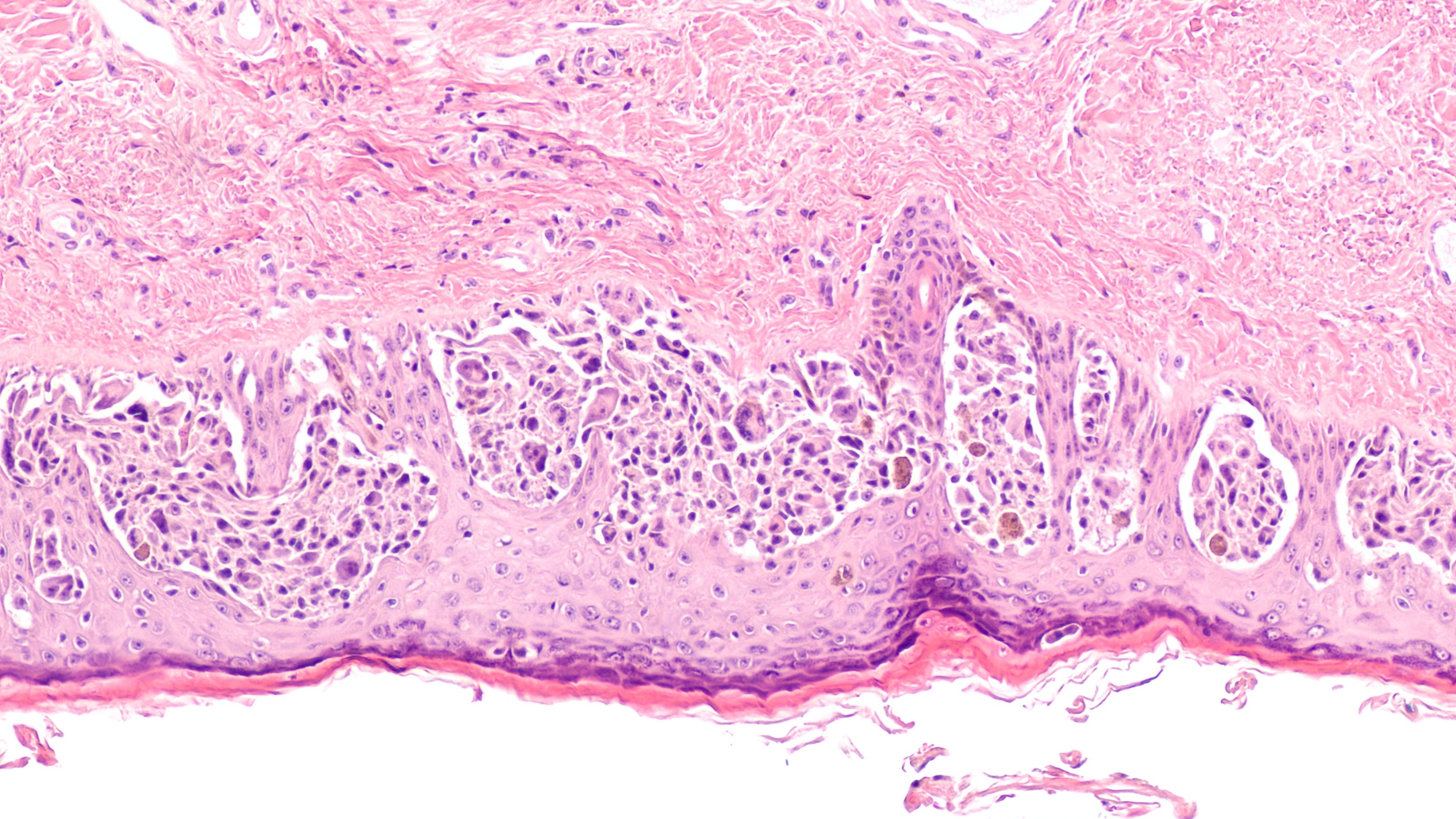- Acne
- Actinic Keratosis
- Aesthetics
- Alopecia
- Atopic Dermatitis
- Buy-and-Bill
- COVID-19
- Case-Based Roundtable
- Chronic Hand Eczema
- Chronic Spontaneous Urticaria
- Drug Watch
- Eczema
- General Dermatology
- Hidradenitis Suppurativa
- Melasma
- NP and PA
- Pediatric Dermatology
- Pigmentary Disorders
- Practice Management
- Precision Medicine and Biologics
- Prurigo Nodularis
- Psoriasis
- Psoriatic Arthritis
- Rare Disease
- Rosacea
- Skin Cancer
- Vitiligo
- Wound Care
News
Article
Nivolumab Approved for Treatment of Stage IIB/IIC Melanoma in Europe
Author(s):
Risk of recurrence or death was reduced by 58% compared to placebo.
Bristol Myers Squibb recently announced that nivolumab (Opdivo) has been approved by the European Commission (EC) as a monotherapy for the adjuvant treatment of stage IIB or IIC melanoma in patients who have undergone complete resection.1 The approval is based on results from the CheckMate – 76K trial, which is part of Bristol Myers Squibb’s development program examining the use of nivolumab and nivolumab-based combinations in earlier stages of cancer.
David A Litman/AdobeStock

Nivolumab is now indicated for use in patients ages 12 years and older with stage IIB or IIC melanoma, or melanoma with lymph node involvement or metastatic disease who have experienced complete resection. Between 2 approvals, nivolumab is the only programmed death-1 (PD-1) inhibitor that has been approved as an adjuvant treatment within stages IIB, IIC, III, and stage IV resected melanoma.
In the phase 3 randomized, double-blind CheckMate – 76K trial, nivolumab reduced the risk of recurrence or death in patients with IIB or IIC melanoma by 58% compared with placebo(hazard ratio [HR] 0.42; 95% CI: 0.30-0.59; P < 0.0001). Patients were followed for a minimum of 7.8 months.
“Patients with stage IIB or IIC melanoma are at a high risk of disease recurrence following surgery. This can be a very impactful event for patients,” said Peter Mohr, MD, chief physician and head of the Skin Cancer Center, Buxtehude, Department of Dermatology in Elbe-Kliniken, Germany, in a news release. “This approval reinforces the benefit that nivolumab may offer when used after resection, potentially preventing the disease from recurring.”
In the 12 months following treatment with nivolumab, the recurrence-free survival rate was 89% (95% CI: 86-92) compared with 79% (CI: 74-84) for placebo.
In follow-up ranging from 2.3 to 28 months of 4646 tumors, the most common adverse events (AEs) were fatigue (44%), musculoskeletal pain (28%), diarrhea (26%), rash (24%), cough (22%), nausea (22%), pruritis (19%), decreased appetite (17%), arthralgia (17%), constipation (16%), dyspnoea (16%), abdominal pain (15%), upper respiratory tract infection (15%), pyrexia (13%), headache (13%), anemia (13%) and vomiting (12%). Most of the AEs were mild to moderate.
Nivolumab was the first PD-1 immune checkpoint inhibitor to receive regulatory approval in the world in July 2014.
Reference
- Bristol Myers Squibb receives European Commission approval for Opdivo (nivolumab) as an adjuvant treatment for patients with completely resected stage IIB or IIC melanoma. News release. August 22, 2023. Accessed August 23, 2023. https://news.bms.com/news/details/2023/Bristol-Myers-Squibb-Receives-European-Commission-Approval-for-Opdivo-nivolumab-as-an-Adjuvant-Treatment-for-Patients-with-Completely-Resected-Stage-IIB-or-IIC-Melanoma/default.aspx
Newsletter
Like what you’re reading? Subscribe to Dermatology Times for weekly updates on therapies, innovations, and real-world practice tips.















